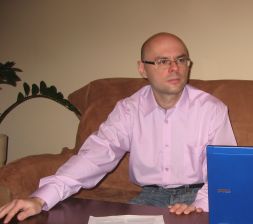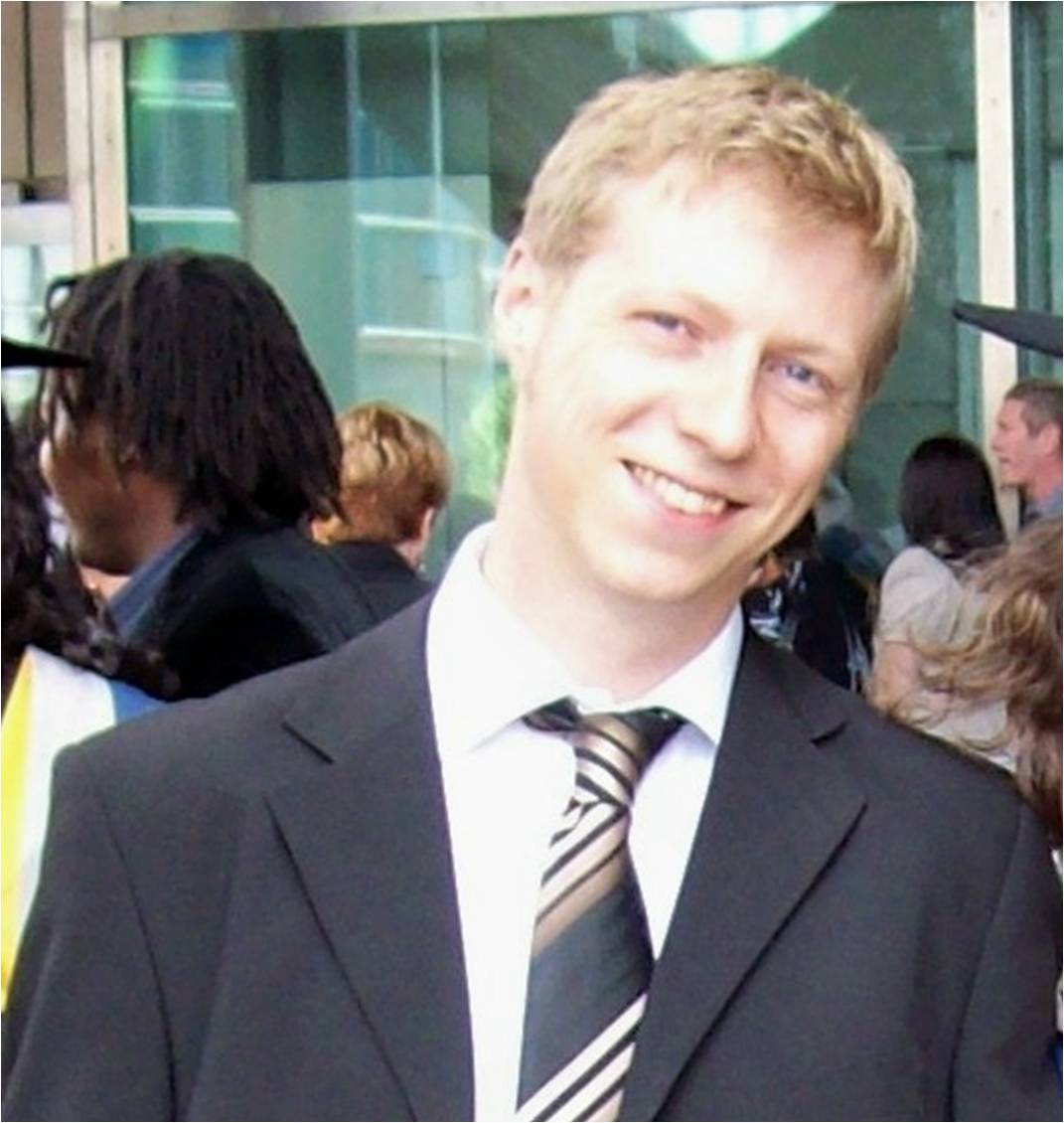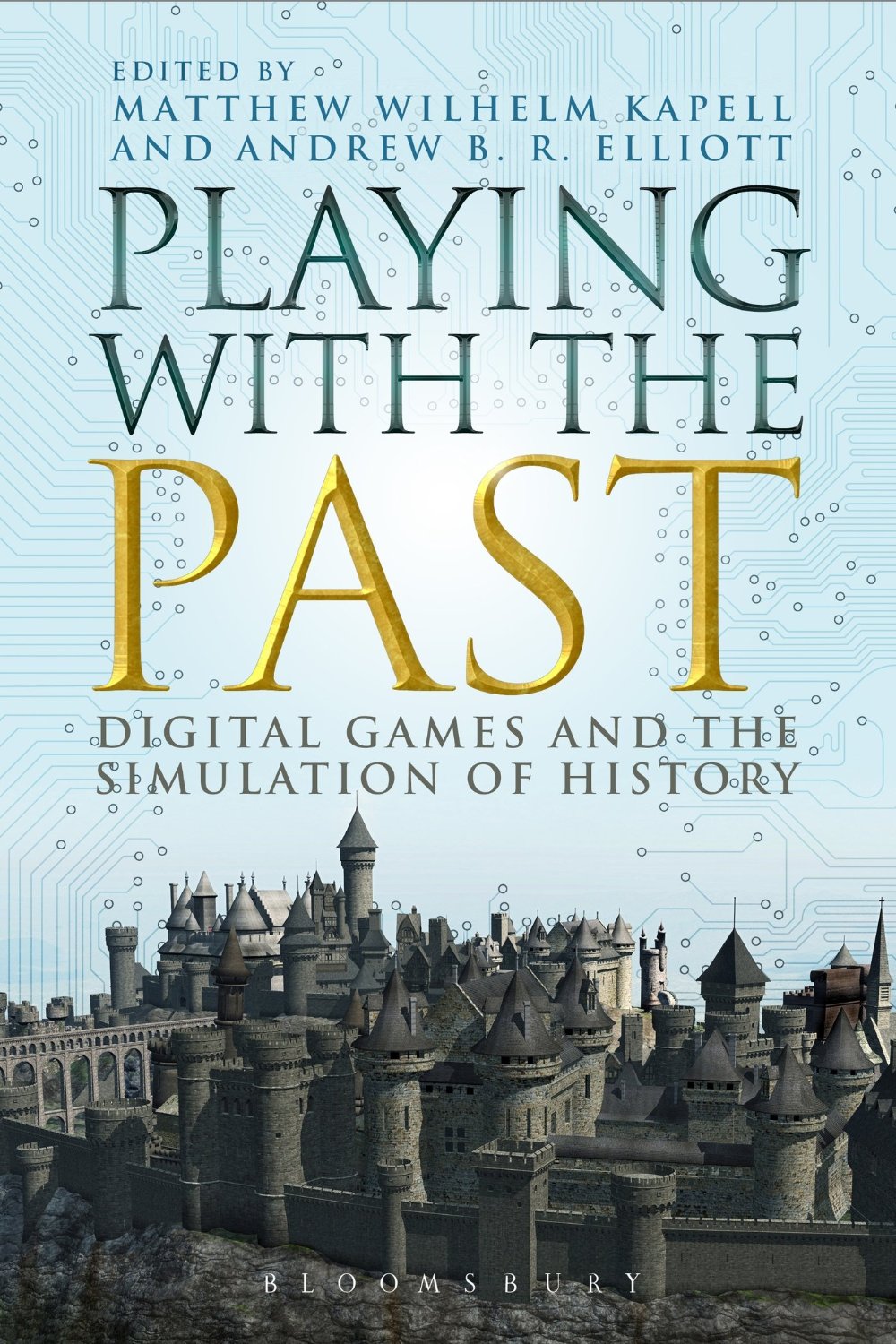
|
|

|
Keynote Speakers
Tree data structures in the synthesis of effective computational algorithms with special focus on algorithms operating on the special matrices

|
Jerzy Respondek |
Abstract
The only data structures used by the computational algorithms are the 1D table and the matrix. The only exception to that is the algorithm for the N body system simulation, classical problem in physics, whose naive implementation without the use of dynamic data structures gives weak, quadratic time complexity. In this problem the adaptive changing tree improves the efficiency to the linear level.
The objective of this lecture is to show how to utilize dynamic data structures in the construction of efficient algorithms operating on selected kinds of special matrices. We have shown by the concrete examples how the special matrix structure enables to improve the attainable overall algorithm efficiency. That improvement is possible thanks to the flexibility of dynamic data structures, particularly the binary trees as well as the double linked lists, which are well known in computer science but rarely used by
the computational algorithms specialists.
Curriculum Vitae
Jerzy S. Respondek is an Associate Professor in the Computer Science Faculty in the Silesian University of Technology. He obtained his MSc and PhD degrees in Computer Science. His scientific interests include computer science and mathematics. He is known for his articles on computational algorithms, especially pertaining to the structured matrices. Since 2008 Professor Respondek has served in the Mathematics & Computers in Simulation ISI Journal Editorial Board and the International Program Committees of a series of conferences listed in the most prestigious computer science conferences rankings. He cooperated as an reviewer with a dozen of prestigious ISI Journals. He was invited as a Visiting Professor to a number of European universities listed on high positions of the Shanghai Ranking. Between 2007 and 2008 Professor Respondek was a member of the young division of the Polish Academy of Sciences Forecasts Committee. Between 2012 and 2013 he participated in the advisory group in the Polish Ministry of Science. Currently Professor Respondek works in a special, interdisciplinary group on science popularization in that ministry.
Simulations and simulacra: history in video games

|
Dr Andrew Elliott |
Abstract
With the gaming industry forecast to generate $100 billion per year by 2017, and with historical video games such as Assassin’s Creed or the Total War, Call of Duty, and Civilization series regularly topping sales charts, it is clear that not only are video games in general big business, but that historical games are also a popular way of engaging with the past. This popularity creates new questions in turn, which as yet remain unanswered: is it possible to learn history from a video game? Is it even something that we would want to do? And if it were possible, what kind of history would that be, and how might that influence current attitudes to the past, or the formation of identities in the present? Furthermore, if millions of players are beginning to replay the two world wars through video games, or are learning about medieval mercantile societies through casual gaming like Medieval Merchants, what legacy does this leave in terms of what Pierre Sorlin terms, after Pierre Bourdieu, "historical capital"?
Despite the importance of such questions, scholarship engaging with historical video games has been slow to follow. Although there exist a handful of isolated studies which do examine historical video games—notably Uricchio’s 2005 essay “Simulation, History and Computer Games”, or Kurt Squire’s 2004 doctoral study of learning history through Civilization IV—these attempts tend to favour either an overtly pedagogical approach or questions of representation and accuracy, not to mention the number of occasional articles which simply dismiss historical video games as bad history and inevitably inaccurate. This paper, then, will examine some of the ways in which historical video games quite literally ‘play with the past’, asking what kind of historical enquiry this is, and what these kinds of simulations can offer both for historical representation, historical capital, and for the modern gaming industry as a whole.
Curriculum Vitae
Andrew Elliott is a Senior Lecturer at the University of Lincoln, UK, where he works on the representation of history in film, television and video games. He is the PI on a multidisciplinary research project working on a new app for Lincoln Cathedral, which aims to democratise history by allowing communities to collect and curate their own pasts. Graduating from the University of Durham with a BA (Hons) in Modern European Languages in 2003, he received his MRes (2006) and PhD (2009) in interdisciplinary Research from the University of Exeter, where he began to analyse the role of history in shaping modern culture, in terms of popular culture and its effects on cultural capital. His recent book, Playing with the Past (2013) was co-edited with Matthew Wilhelm Kapell and examines the depiction, simulation and modding of the past in video games. He is also author of Remaking the Middle Ages (2010, analysing medieval cinema) and editor of The Return of the Epic Film (2014, which examines the return of the sword and sandals epic in the cinema) as well as author of the forthcoming Medievalism and the Mass Media (due 2015). He has published articles and essays on a range of topics from Vikings to violence, and from video games to advertising, all of which focus on the use of history in popular culture.

|
His latest book is called Playing with the Past. |
Airplane Emergency Analysis

|
Prof. Jaap Van den Herik |
Abstract
Looking at airplanes, trains, and cars, it is well known that airplanes are the safest traffic vehicles. There are many reasons for this. A striking difference between airplanes on the one hand and trains and cars on the other hand is that airplanes use the automatic pilot system, whereas the other two traffic types are in their infancy with respect to an automatic driver. In airplanes an automatic driver is nowadays nothing special. Only in cases of emergency a difference of philosophy becomes apparent.
We distinguish two types of philosophy: A and B. In philosophy A authority is given to the computer (reason: If there exist a technology to automate emergency handling, this should be done). In philosophy B authority is given to the pilots (reason: automation is a tool to assist pilots). The prevailing question is: Which approach is best for emergency cases?
Currently, there is no clear answer, and therefore the question arises: can we develop an adequate emergency HCI architecture? Three essential features are: (1) human cognition, (2) human mental workload, and (3) situation awareness. The interesting variables are: complexity, location, and feedback. The challenge of our research in emergency handling occurs in high complexity, different locations, and poor feedback. A deep analysis of the relations and dependencies in extreme situations may lead to further insight into the best HCI architecture.
In the lecture two models are shown: each with a different philosophy. They try to align the three variables in such a way that the result is a reliable and robust Emergency Architecture. We will show relations, correlations, and implications of the variables discussed.
In the world of airplanes and safety, there is no indisputable preference for whatever model. By interviews and simulations we are attempting to find reasons, examples, and arguments to arrive upon an answer. Modelling and simulation play a key role together with criteria for deciding when an emergency design is reliable and robust.
Curriculum Vitae
Jaap van den Herik is Professor of Computer Science and Law at the Leiden University, at the Faculty of Science (since 2014) and the Faculty of Law (since 1988). Previously, he was affiliated with the Tilburg University (2008-2014) and the Maastricht University (1987-2008) as full Professor of Computer Science. He is the founding Director of IKAT (Institute of Knowledge and Agent Technology) and TiCC (Tilburg center for Cognition and Communication) and was supervisor of 67 Ph.D. researchers. Van den Herik studied mathematics (with honors) at the Vrije Universiteit Amsterdam and received his Ph.D.degree at Delft University of Technology in 1983. He was active in many organizations, such as the Belgian Netherlands Association of AI, JURIX, the ICGA, and the consortium BIGGRID. He is ECCAI fellow since 2003.
Van den Herik is member of the TWINS (the research council for sciences of the KNAW) and a member of the Royal Holland Society of Sciences and Humanities.
In 2012, the HEPGAME proposal was awarded by the European Research Council as an advanced research project. The project runs from 1-07-2013 to 1-07-2018. (Proposers are Jos Vermaseren (principal investigator), Jaap van den Herik and Aske Plaat.
In 2014, he received the HUMIES Award at het GECCO2014 together with David (Eli) Omid Tabibi, Nathan Netanyahu, and Moshe Koppel for their contribution: Genetic Algorithms for Evolving Computer Chess Programs.
His research interests are: Computer Games, Search Algorithms, Genetic Algorithms, Simulation and Modelling, Serious Games, Adaptive Agents, Neural Networks, Information Retrieval, Big Data, e-Humanities, Intelligent Crowd Sourcing, and Intelligent Systems for Law Applications.
You can download his Powerpoint presentation here 15Mb 


 Email:
Email: 









